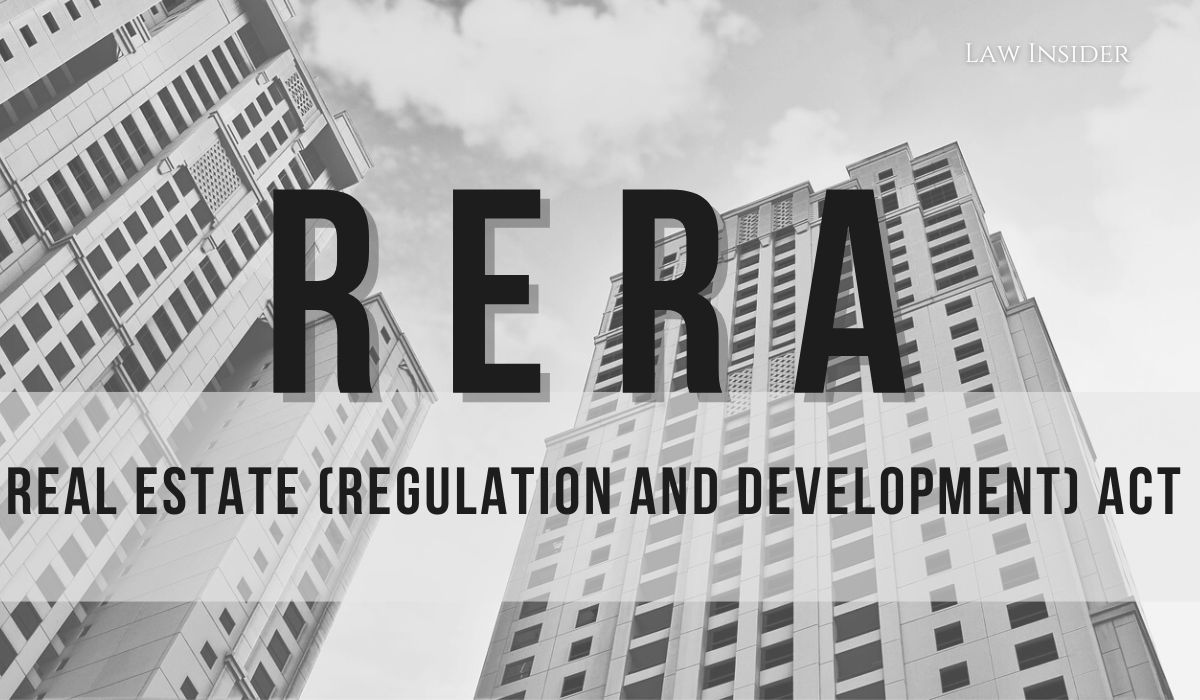By Saurav Yadav
Published on: February 8, 2024 at 12:46 IST
Real Estate Regulation Authority (RERA), the superhero of real estate, It came into action to make sure buying a home is a smoother and safer journey for you. RERA keeps a watchful eye on builders, making them play by the rules. They need to register their projects and agents, ensuring transparency. The RERA also ensures projects are completed on time, saving you from endless waiting. Plus, if you ever have a problem, RERA has your back, providing a legal shield to protect your rights as a homebuyer.
RERA typically aim to protect the interests of homebuyers, promote fair practices in the real estate industry, and establish regulatory authorities to oversee real estate transactions.
One of the key players in the real estate industry is the promoter, and RERA outlines specific functions and duties that promoters must adhere to in order to ensure fair practices and protect the interests of homebuyers. In this article we will delve into the essential functions and duties of a promoter under RERA.
Real Estate Regulatory Authority Act, 2016
The RERA Act, the Real Estate (Regulation and Development) Act, is a game-changer in the Indian real estate. It is a landmark legislation in India aimed at regulating the real estate sector and safeguarding the interests of homebuyers, Enacted in 2016, aims to bring transparency, accountability, and efficiency into the real estate sector.
Some key features of the Real Estate (Regulation and Development) Act, 2016:
- Regulatory Authorities: Each state has a watchdog called the Real Estate Regulatory Authority (RERA) to keep an eye on real estate activities.
- Mandatory Project Registration: Builders must sign up their projects with RERA before they can promote or sell them. This applies to both homes and commercial projects.
- Project Details: Builders need to spill the beans about their project – layout, approvals, completion timeline, and more. This info is made public to keep things transparent.
- Bank Account for Funds: Builders have to park a portion of the project’s cost in a separate bank account. This ensures the money goes where it should and minimizes the chance of any ‘diversions’.
- Timely Completion: RERA wants projects to finish on time. If there are delays, builders might face penalties.
- Defects Liability: Builders are on the hook for any issues with the building’s structure or work quality for a set time after buyers move in.
- Fair Practices: RERA cracks down on shady dealings like false ads or tricky tactics. The goal is to keep things honest.
- Buyer’s Rights: Homebuyers get specific rights, and if they have a problem, there are official channels to sort things out.
- Real Estate Agents: Even agents need to register with RERA. This makes sure only legit and registered agents are in the game.
- Penalties: If builders don’t follow the rules, RERA can slap them with fines. This includes penalties for late project delivery or other rule-breaking.
Who is a promoter as per RERA?
According to Section 2(zk) of RERA, a promoter is defined as a person who:
- Develops or constructs: Either develops a project himself or engages another person for the development.
- Sells or lets out: Either sells or lets out independently or in collaboration with others.
A promoter is defined as an individual, company, partnership firm, or any other entity who develops a project for sale to the public. This definition encompasses developers, builders, landowners, or any person responsible for marketing and selling the project.
What are the Duties and function of Promoters under Real Estate Regulation Act?
Here are the key duties of Promoter under the Real Estate Regulatory Authorities (RERAs):.
- Obtain all necessary approvals and permissions: This includes land-related approvals, building plans, environmental clearances, etc.
- Register the project with RERA: Before advertising, marketing, or selling any units, the promoter must register the project with the relevant RERA authority.
- Provide project details to buyers: This includes sanctioned plans, layout plans, specifications, amenities, timelines, and carpet area calculations.
- Maintain transparency: The promoter must disclose all project-related information truthfully and transparently, including any changes made to the plans or schedules.
- Deposit 70% of collected funds in an escrow account: This ensures the funds are used solely for project construction and prevents diversion.
- Develop the project as per approved plans: Deviations from approved plans without consent from buyers and authorities are not allowed.
- Obtain occupancy certificate and completion certificate: These certificates signify project completion and compliance with regulations.
- Execute conveyance deeds: The promoter must issue registered conveyance deeds to buyers, transferring ownership of their units.
- Provide essential services: Until the buyer association takes over, the promoter is responsible for providing essential services like water, sanitation, and security at reasonable charges.
- Enable formation of buyer association: The promoter must facilitate the formation of a cooperative society or association of buyers to manage the property after handover.
- Address structural defects: Even after conveyance, the promoter is liable for rectifying any structural defects for a certain period.
- Additional responsibilities:
- Maintain project accounts and records: The promoter must keep proper financial records and make them available for inspection by authorities and buyers.
- Avoid unfair trade practices: False advertising, misleading information, and one-sided agreements are prohibited under RERA.
- Address buyer grievances: The promoter must have a grievance redressal mechanism to address buyer complaints promptly and fairly.
Penalties for non-compliance:
RERA prescribes penalties for non-compliance by promoters, which can include financial fines, imprisonment, or project cancellation.
Conclusion
In conclusion, promoters play a vital role in the real estate ecosystem governed by RERA. By adhering to their functions and duties under RERA, promoters contribute to enhancing transparency, accountability, and consumer confidence in the real estate sector, ultimately benefiting all stakeholders involved.

